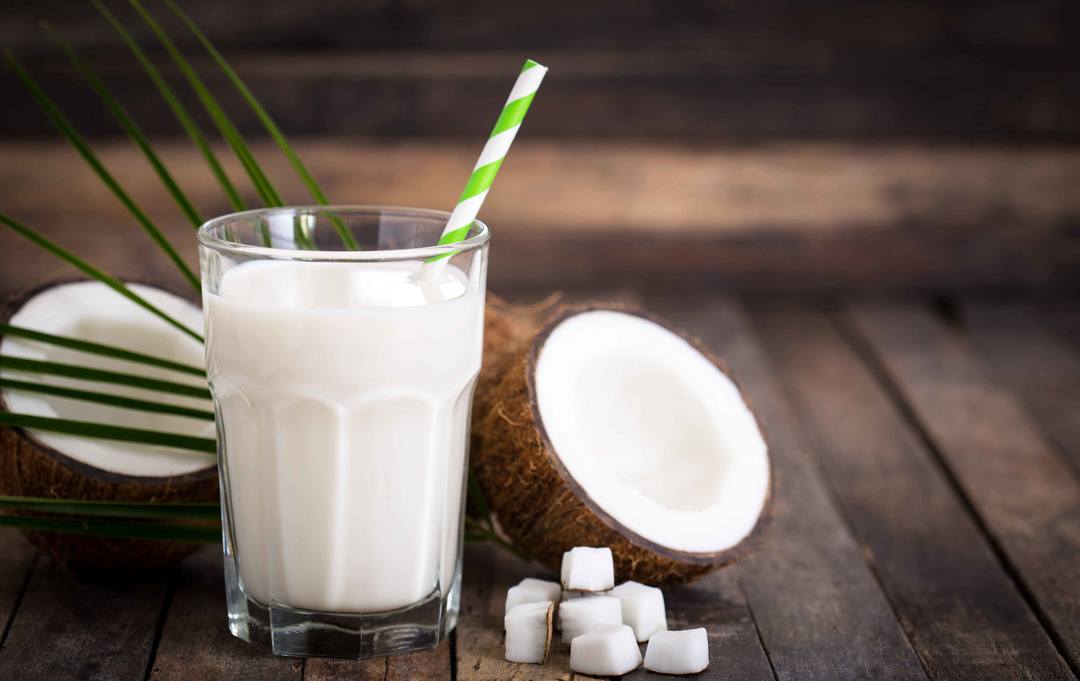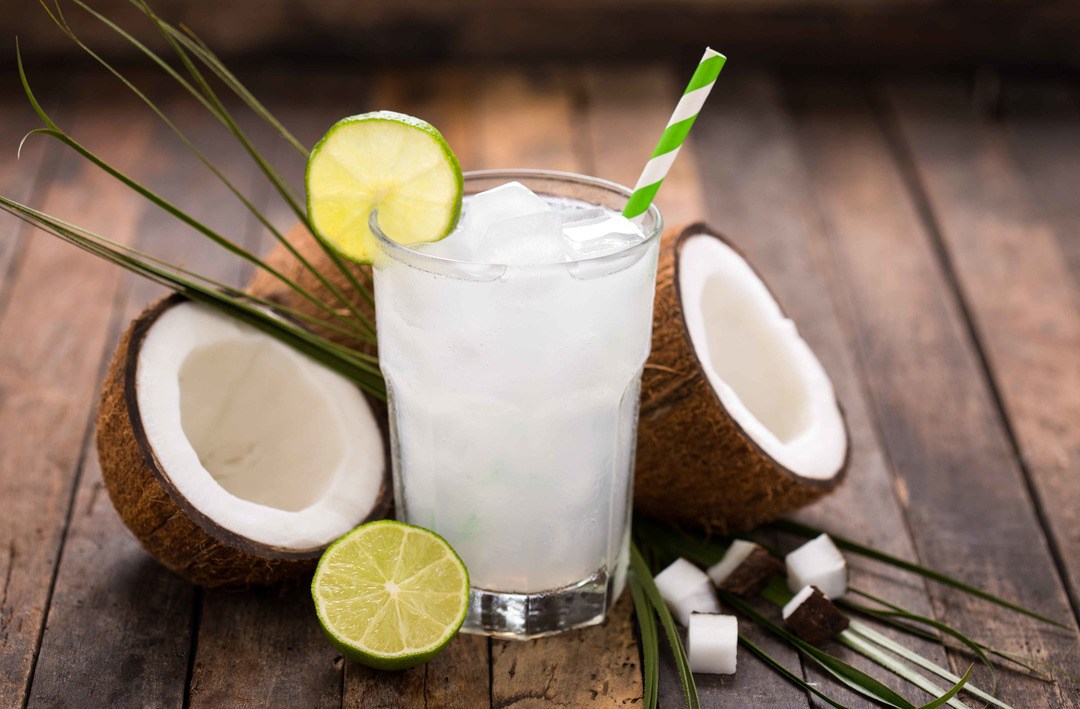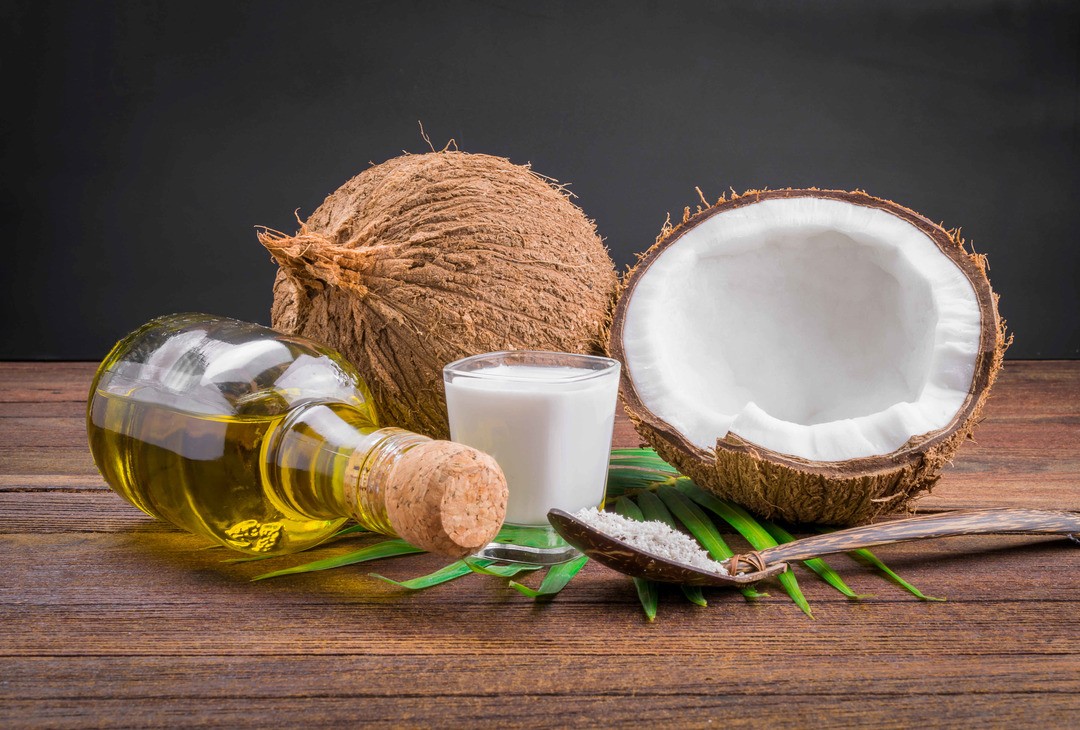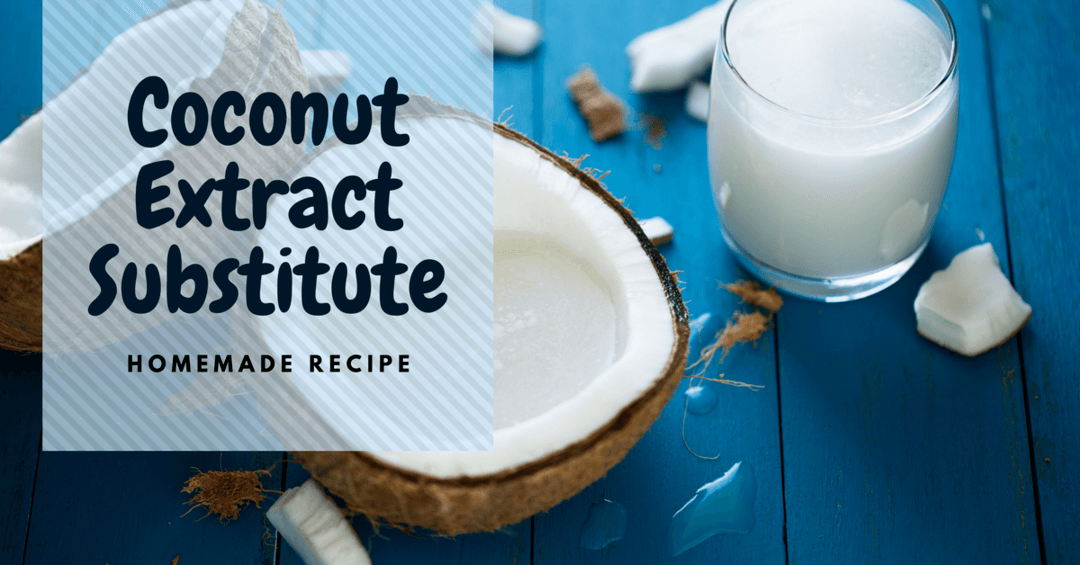Let’s talk about coconuts!
It’s not a nut, and it’s not a vegetable – a coconut is actually a fruit. That’s quite interesting, I know.
For this particular post, I will cover 9 coconut extract substitutes. I really don’t know the exact reason why you want a substitute for coconut extract – but this article will provide you with a lot of options.
Also called “the tree of life,” coconuts have lots of benefits (and uses). In the kitchen, its culinary purposes include using it as an ingredient in making different types of recipes. Coconut flavor tastes great in baked dishes, soups, sauces, and more – that’s why it’s really in demand as a cooking ingredient.
More...
9 Substitutes for Coconut Extract
Substitute #1 – Coconut Milk
Coconut milk is very flavorful as it carries that distinct coconut flavor. Compared to coconut water, it is not that diluted in taste and texture – that’s why you can use it in more recipes that call for coconut extract.
Coconut milk is liquid in form – so, you can use it for making soup recipes as well as chowder and stew dishes. And since it’s thicker than water, it’s also suited for making pastries (like cakes and cookies). When used as a substitute for coconut extract, make sure that you do not overcook the ingredient in your recipes.
You see, overcooking coconut milk can cause the liquid components to separate from the coconut milk’s oily essence – and can, therefore, make your recipes greasy.

Coconut Milk
Substitute #2 – Coconut Water
Coconut water also has the same taste as coconut extract – only milder. Its consistency will also affect your recipes, especially if you use it for cooking. Therefore, coconut water is not really a recommendable substitute for baked recipes as its mild flavor won’t really stand out as coconut. If you’re making a soup-based dish, however, coconut water would really work as a substitute.

Coconut Water
Substitute #3 – Coconut Oil
Needless to say, coconut oil makes for a great substitute for coconut extract. It’s oily, yes, but it’s also bursting with coconut flavor (just like the extract version – or almost). This coconut extract substitute is especially good for making desserts and pastries.

Coconut Oil
Substitute #4 – Coconut Rum
If you don’t mind alcohol in your recipes, Coconut rum can be one of your chosen substitutes (if coconut extract is not available when you need it). This drink actually contains coconut extract and carries a very distinct coconut flavor.
You can use coconut rum as coconut extract substitute for recipes that require being cooked. Its alcohol taste will diminish as the dishes cook (soups, stews, chowders) and the coconut flavor will be more distinct. Still, you may want to use it sparingly if you really want to minimize the rum taste in your recipes.
Substitute #5 – Vanilla Extract
Vanilla extract is an all-around flavoring and it complements other types of extracts as well. If you have vanilla extract in your pantry but need coconut extract, you can use it as a substitute since it also carries a wonderful flavor. Yes, they’re not exactly the same in flavor (coconut and vanilla), but either one will result in a tasty recipe.
Substitute #6 – Almond Extract
Almond extracts don’t really taste like coconut extract – but you can still use it as a substitute ingredient if you suddenly find yourself in need coconut extract (and don’t have it). You see, coconut and almond extracts complement each other well when combined in recipes. So, the almond extract can provide for a flavorful result in recipes that actually require coconut extract.

Almond Extract
Substitute #7 – Imitation Coconut Extract
An imitation coconut extract would surely make for a fine substitute for real coconut extract. However, it’s called “imitation” because it’s not the real thing. It’s made to taste like the real thing – but really, it’s not.
As an imitation product, imitation coconut extracts may contain artificial ingredients that are not that good for the body. I would suggest not using this coconut extract substitute too frequently as it will defeat the purpose of using healthy ingredients (like coconut extract) in your recipes.
Substitute #8 – Flaked Coconuts
You can make a good coconut extract substitute by simmering coconut flakes (Amazon) in milk, cream, or water. Allow the mixture to cool off before straining it and using it as coconut extract substitute.
Substitute #9 – Homemade Coconut Extract
Yes, you can make your own coconut extract if you want to. This way, you won’t have to substitute this ingredient with something else.
Here are the basic steps to making your own coconut extract:
Health Benefits of Coconut Extract
Aside from being a flavorful ingredient that provides for that tropical feel in recipes, coconut has many health benefits. It’s a type of superfood, you know, so that can be expected. Listed below are just some of the many health benefits of this ingredient.
Coconut Extract Recipe
I know I have already given you some idea as to how to make your own homemade coconut extract from scratch (#9 in the Coconut Extract substitute list). And while it’s the best way (because it’s all natural) to make a coconut extract recipe, you might not have the time for it.
The example I gave you requires using whole fresh coconuts, and you still need to go through the baking process to prepare the ingredients. So, for this section, I will provide you with a simpler homemade coconut extract recipe (video). The ingredients are few – and the steps are very easy to follow, as you will see below.
Procedure:
For this recipe, the steps involved are really simple. Basically, it just involves mixing some ingredients in a jar and shaking the mixture occasionally. If you think you can do your part in shaking the mixture up at least once a week, you can make your very own coconut extract instead of having to buy it.
Gotta Love Coconut Substitutes
Now that you know of 9 substitutes for ready-made coconut extracts (including a recipe wherein you can make your homemade version), you will surely get by in cooking recipes that call for this ingredient.
Of course, I suggest using the real thing (coconut extract) when a recipe calls for it, as this will produce the best results. The only reason why you should use substitutes is when you’re in a pinch and can’t find this exact ingredient in your pantry.
Also, remember that coconut, in particular, is a healthy type of food (and is a healthy ingredient). It comes in many different forms – but all of them are basically good for your health.
In the list of coconut extract substitutes above, the only one I really do not recommend is the imitation coconut extract. It’s made of artificial ingredients – which is not really good for your health. So, should you decide to stock up on this ingredient as a coconut extract substitute, I suggest using it sparingly.
Another coconut extract substitute on the list is the coconut rum. When deciding to use it as a substitute, keep in mind that it has alcoholic content.
All the other coconut extract substitutes in the list are fine with me – and I recommend them all to you. Still, keep in mind that they’re only meant as substitutes. For one, coconut extract really has a strong flavor, so using substitutes with milder flavors will probably require more. Therefore, if you only need a few drops of coconut extract, you might need a cup of a substitute with more liquid content (e.g. coconut milk, coconut water, etc.). So, keep that in mind.
Well, good luck with your recipes and I really hope that you will benefit from the use of coconut extract in your recipes. If you know of someone who is also looking for coconut extract substitutes, feel free to share this post with them. Your feedback is also highly appreciated.



Leave a Reply